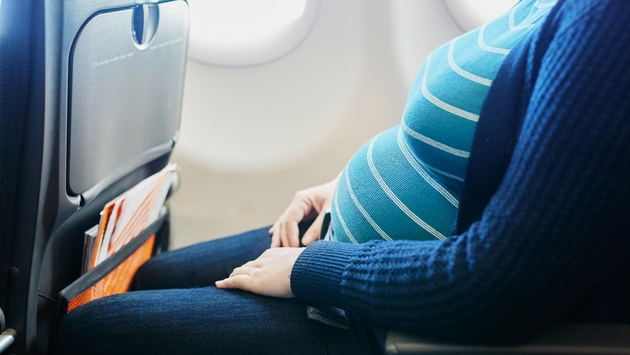Can you travel during pregnancy? 5 essential tips to help you stay safe as a mummy-to-be.
- adrianypc
- May 30, 2019
- 3 min read
(Credits)
Regardless of whether it’s a weekend getaway to Malaysia for some shopping and cafe-hopping, or a long trip to Europe where we can enjoy the cold weather, we Singaporeans love to travel.
But for all the mummies-to-be out there: can you travel during pregnancy? And what should you keep in mind if you’re taking a trip while you’re pregnant? Read on to find out more!
Can you travel during pregnancy?
Whether you can travel during pregnancy depends on two things: firstly, how heavily pregnant you are; secondly, if you’re having a high-risk pregnancy.
Generally speaking, it’s safe for women in their first and second trimesters to travel. If your plans are flexible, we recommend travelling in your second trimester instead of the first. Because your body will be undergoing plenty of hormonal changes in your first trimester, you might experience more nausea than usual during your trip. In your second trimester, however, your nausea (if any) should have subsided, and you should have more or less adjusted to your pregnancy.

(Credits)
Why shouldn’t you travel during your third trimester? Well, in your third trimester, your baby will grow a lot heavier, resulting in backaches, leg cramps, breathlessness and general fatigue on your end. Bearing this in mind, you’ll need to get ample rest, and it’s not feasible for you to spend your days exploring a foreign country.
Also: in order to ensure the safety of their passengers, some travel providers impose travel restrictions based on how far along you are in your pregnancy. For instance, Bintan Resort Ferries will not take on any passengers who are further along than 28 weeks, and Royal Caribbean Cruises mandates that its pregnant passengers should be 24 weeks pregnant at the maximum.
Checking in with your ob-gyn
Even if you’re in your second trimester, and you don’t have any nausea, you should still get the go-ahead from your ob-gyn if you want to travel during pregnancy.

(Credits)
Why is this the case? Well, if you’re undergoing a complicated pregnancy with risk factors for premature labour, then your ob-gyn might advise you to not travel (or to stop travelling earlier on in your pregnancy).
If you have conditions such as gestational diabetes, then your ob-gyn will also have to advise you on how to manage your condition whilst you’re travelling.
Want to travel during pregnancy? Here are some tips for a safe journey:
#1: Don’t travel far.
Long-haul flights are uncomfortable for most folks, but they can be a downright nightmare for pregnant women. More specifically: pregnant women who fly for more than eight hours at a time have a higher risk of developing Deep Vein Thrombosis (DVT), a condition where a blood clot forms in your leg or calf.

(Credits)
There are certain things you can do to mitigate DVT, such as stretching and standing up to walk every so often when you’re in your flight. That said, the wisest thing to do here would be to just avoid long-haul flights altogether.
#2: Pay more to get an aisle seat.
Taking a budget airline? It makes sense to pay that extra amount to secure an aisle seat. This way, you’ll be able to take frequent trips to the bathroom, and stand up and stretch your legs whenever you need.
#3: Avoid cruise ships.
A cruise might sound like a relaxing holiday, but assuming your motion sickness sets in, this will pretty much ruin your entire trip.
If you’ve been on a cruise before, you’re past your period of morning sickness, and you’re confident you can handle it, go ahead. But if this is the first time you’re going on a cruise, we recommend re-considering your options.
#4: Steer clear from developing countries.
This one’s fairly straightforward – high-quality medical care might not be readily available in developing countries, so postpone your more adventurous trips for another occasion.

(Credits)
It’s also worth noting that not all vaccinations are safe for pregnant women, so it also pays to avoid places that require you to get vaccinated before you travel.
#5: Maintain a balanced diet
Bring along your prenatal vitamins, and try to book accommodation that’s near a supermarket or minimart. This way, you can purchase fruits and vegetables to consume on your trip.
At the same time, don’t eat at street side stalls, or try any food that looks dubious. This is not the time to be coming down with food poisoning!



Comments